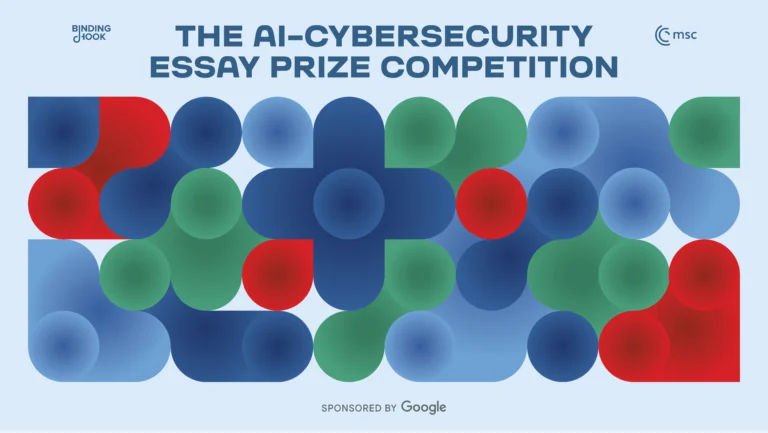Nigeria-South Africa social media tensions highlight the importance of the Common African Position

The online bullying of a South African pageant contestant of Nigerian descent and cross-border digital pranks targeting ride-share drivers reveal a disturbing trend in Nigerian-South African relations: digital spaces being weaponised for xenophobic ends. In the age of viral outrage, social media is no longer a mere reflection of public sentiment: it is a potent catalyst for diplomatic friction, with real-world consequences. Building on the Common African Position (CAP) on the Application of International Law in Cyberspace with a framework to address this sort of conflict could allow Africa to be a model for the rest of the globe.
Africa’s two largest economies have had a complex relationship since South Africa’s transition to democracy in 1994. Initially characterised by solidarity (Nigeria was a staunch supporter of the anti-apartheid struggle), the relationship evolved into one of competitive cooperation. Both nations collaborated in establishing continental frameworks like the African Union and the New Partnership for Africa’s Development (NEPAD), while simultaneously contending for regional hegemony.
Meanwhile, South African companies like MTN and Shoprite expanded aggressively onto Nigerian markets, while Nigerian enterprises such as the Dangote Group sought footholds in South Africa.
This commercial and political intertwining has been occasionally strained by social tensions. Xenophobic attacks on Nigerians in South Africa over the last two decades have significantly marred bilateral relations, with incidents in 2019 prompting Nigeria to recall its ambassador and its citizens to boycott South African businesses.
Cultural competitions have further fuelled this rivalry, from entertainment industry dominance – such as ‘Nollywood’ versus South African film – to heated sports confrontations. Most recently these longstanding tensions have found expression in the digital sphere, where social media platforms amplify nationalistic sentiments and transform minor disagreements into diplomatic flashpoints.
Social media escalation
Social media enmity between Nigerians and South Africans adds a critical new dimension in their complex bilateral relationships. These digital confrontations can rapidly evolve into real diplomatic and economic challenges. As Africa aims to shape global cyber governance, these recurring social media conflicts highlight the urgent need for mechanisms to de-escalate digital disputes before they undermine regional stability.
Nigeria-South Africa relations have historically oscillated between cooperation and competition. As social media platforms such as Facebook, X (formerly Twitter), Instagram, and TikTok emerged and matured, challenges to the bilateral relationship found new expression in digital spaces. Xenophobic attacks against Nigerian nationals in South Africa in 2008, 2015 and 2019; business rivalries involving corporate giants like MTN and Dangote; and cultural competitions have all been amplified through social media.
These social media platforms have fundamentally reshaped how bilateral tensions manifest by circumventing official channels, enabling citizen diplomacy, and accelerating escalation. What previously might have been managed through diplomatic protocols now transforms instantly into viral hashtags like #SayNoToXenophobia, mobilising public opinion across borders within hours.
Antagonisms between Nigeria and South Africa on social media consistently follow a pattern of rapid escalation with tangible consequences. Football rivalries between the countries frequently transcend sport to become geopolitical flashpoints. During the 2024 African Cup of Nations semi-final between Nigeria and South Africa, tension ran so high that the Nigerian High Commission in Pretoria issued an advisory to Nigerian citizens urging quiet celebrations should the Super Eagles win the match. Despite this, a widely circulated video following Nigeria’s victory showed fans enjoying a raucous but seemingly light-hearted celebration was interpreted by some online as provocative, contributing to heightened nationalistic sentiments and ongoing digital friction.
A 2024 controversy surrounding Chidimma Adetshina, a Miss South Africa contestant with Nigerian heritage, began with isolated xenophobic comments on X but quickly spiralled. There was an intense online backlash, spread by viral hashtags such as #ChidimmaAdetshina and #ImmigrationScandal. Adetshina ultimately withdrew from the competition, and said the vitriol had damaged her mental health. The incident sparked outrage among Nigerian (and some South African) social media users and renewed public discourse about xenophobia between the two countries.
The online storm did not end there. In the days that followed, outrage surrounding Adetshina’s treatment mutated into a new digital front, the so-called ‘Bolt War’. Provocative tweets about beauty pageants rapidly transformed into coordinated pranking of ride-hailing drivers across borders, with people from both Nigeria and South Africa booking and cancelling rides in the rival nation, causing economic harm to random drivers in both countries. This situation escalated until Bolt was forced to implement technical restrictions on inter-country requests, demonstrating how digital hostility converts swiftly into economic damage and corporate intervention.
Unlike the football rivalry, the governments of both countries remained conspicuously silent regarding the coordinated prank, highlighting a critical governance gap: private companies are left to implement reactive solutions while state actors remain disengaged. The economic harm was not trivial: drivers lost income, wasted fuel and time, and were subjected to abuse on the platform, while real customers were left stranded or faced high prices amidst the increased, fake demand.
While Bolt’s technical restrictions curbed the abuse, they were a digital band-aid, not a proactive policy response. This governmental inaction illustrates how digital conflicts can flourish in regulatory vacuums. States could have issued joint diplomatic statements condemning the prank or initiated digital platform cooperation agreements. Instead, their silence forced private actors to navigate this cross-border conflict alone, setting a troubling precedent for future digital disputes and potentially emboldening future perpetrators.
A place for Africa to lead
The Common African Position, adopted by the African Union in January 2024, represents a significant step in global cyber governance leadership; Africa was the first continent to establish such a unified position.
Yet this ground-breaking framework primarily addresses state-driven cyber operations, leaving a critical gap: the management of citizen-driven social media conflicts that can rapidly escalate bilateral tensions, as demonstrated by recurring Nigeria-South Africa digital disputes.
African states are uniquely positioned to lead in social media conflict resolution because the continent’s growing digital population, coupled with its distinctive history of regional cooperation mechanisms, creates both urgency and capacity to develop innovative approaches to this challenge.
By extending existing cybersecurity frameworks to encompass social media de-escalation protocols, Nigeria and South Africa could transform their digital flashpoints into a template for managing similar challenges emerging worldwide, particularly among nations with complex historical relationships.
Developing frameworks for social media conflict resolution faces significant challenges. Balancing free expression with harmful content regulation requires careful calibration, while cross-border jurisdiction remains legally complex. Additionally, platforms’ cooperation varies greatly, and many digital literacy initiatives have shown limited effectiveness. Nevertheless, the costs of inaction far outweigh these implementation challenges.
The digital tension between Nigeria and South Africa demonstrate how social media has transformed bilateral relations. From beauty pageant controversies to the ‘Bolt War,’ these incidents reveal a concerning pattern where online hostilities quickly escalate, with real-world consequences for diplomatic ties, economic interests, and citizen welfare.
As Africa establishes its leadership in global cyber governance through the Common African Position, addressing social media conflicts is the next frontier. By developing frameworks specifically designed to de-escalate digital disputes, African states can protect their interests while creating models with global applicability. The future of African diplomacy increasingly depends on managing the digital sphere, a challenge that demands structured, collaborative governance approaches suited to this new reality.




